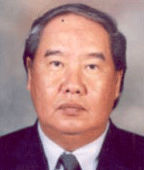

Interview with Mr Stefanus Kotjo

Managing Director
PT APAC INTI CORPORA

How has the accumulated experience for past 15 years in textile industry been for PT APAC INTI CORPORA Group? Can you please highlight the major changes in textile industry you may have noticed?
-Lead time is getting narrow
-Spot business
-Price pressure due to too many players in the market and the power of Big Retailers
-Reduced role of middlemen
-Quality level demanded by Customers is getting higher
-Denim become Fashion. Basic products are no more profitable, hence pushing the Manufacturers to invest the new technologies in order to add value to the product
-Emergence of China as an important global player
-Shift of production base from developed countries to the developing countries
-Dismantling of quota regime, enabling the Buyers to source the fabrics and finished products in one country or location
In this giant Global textile market, how has APACINTI positioned itself domestically as well as internationally?
In this giant Global textile market, APACINTI has positioned itself domestically as well as internationally by realising the importance of;
To your company’s success recipe, what all constitute as crucial ingredients?
The crucial ingredients of our company’s success recipe are very much in line with the above points. These are basically:
-Giving the utmost importance to the human factor in the operations
-Working in a positive environment where the ideas are appreciated
-Team building and team work
-Keeping abreast with the technological advancements and developing the will to adapt these to our systems
-Maintaining a complete focus on the core business
-Implementing cost cutting measures and working towards a lean and effective organization structure
-Building a strategic partnership relation with Customers & Suppliers
-Offering Customers a complete range of product packages due to our vertical integrated set up of operations
Cotton market is experiencing ill-fate times due to low production and steep price rise. Cotton yarns being your one of the line of operations, will it affect your business? What can be said on global cotton market shaping up in this context?
Cotton market will certainly affect our bussiness.
We are extremely concerned with the current cotton fibre situation globally, as almost 70% of the products manufactured are cotton. We understand that cotton being a natural fibre would always remain an unpredictable proposition specially, nowdays Cotton future trading is becoming a target of speculative global funds.
Post an agreement between China and the EU, exports of China's textile products to the EU countries will not be subject to any quantity limits starting this year, and textile export quotas to the US will be abolished in 2009. How would you comment on repercussions of this announcement on Indonesian textile industry?
This agreement would definitely give China some advantages to penetrate deeply and increase the coverage of the EU market. However, we all are aware that the costs (labour / energy / fuel) are increasing in China. Therefore in a few years time, China would also be a pal with the rest of ASIA on the production cost. Eventually it will boil down to;
In a nut shell it will be a more level playing field.
US is the largest market for Indonesian textile and apparel exports. What all adversities, do you envisage that current recession in US may cause? How will this affect your business?
We have already started experiencing the impact of slowing down of US Economy. The orders have died down and this trend does not seem to be reversing anytime soon. In order to continue this, we have decided to look internal (local domestic market) and also external untapped markets like ASEAN, Egypt, etc. There is also a possibility of entering into Russian / East European markets. The idea is to minimize the impact of US meltdown and to reduce our dependence on the US market.
For the company of your capacity, what other challenges do you see cropping up in your industry? What will help APACINTI to wade these challenges triumphantly?
We anticipate the following challenges:
-Growing labour cost -Growing energy cost -Growing material and chemical costs-Decreasing the selling price due to decreasing buying power for textile products.
To overcome and conquer these challenges we have to:
a. Cut fixed costs b. Increase the speed and variety of new developments c. Focus on the strength of the CompanyAny forecast on upcoming trends in Denim industry?
The forecast on upcoming trends in denim industry are such as:
- Tencel Denims - Organics Denims - Special finishes; coating - Vegetable dyes - Bulletproof fabric in Denim - Linen / Ramie Denims - Colour Denims - Modal CottonsRelated to product innovations from APACINTI, what news are likely to be heard in coming future?
We are working towards developing some of the products as explained in above forecasted trends.
------------------------------
DISCLAIMER: All views and opinions expressed in this column are solely of the interviewee, and they do not reflect in any way the opinion of Fibre2Fashion.com.